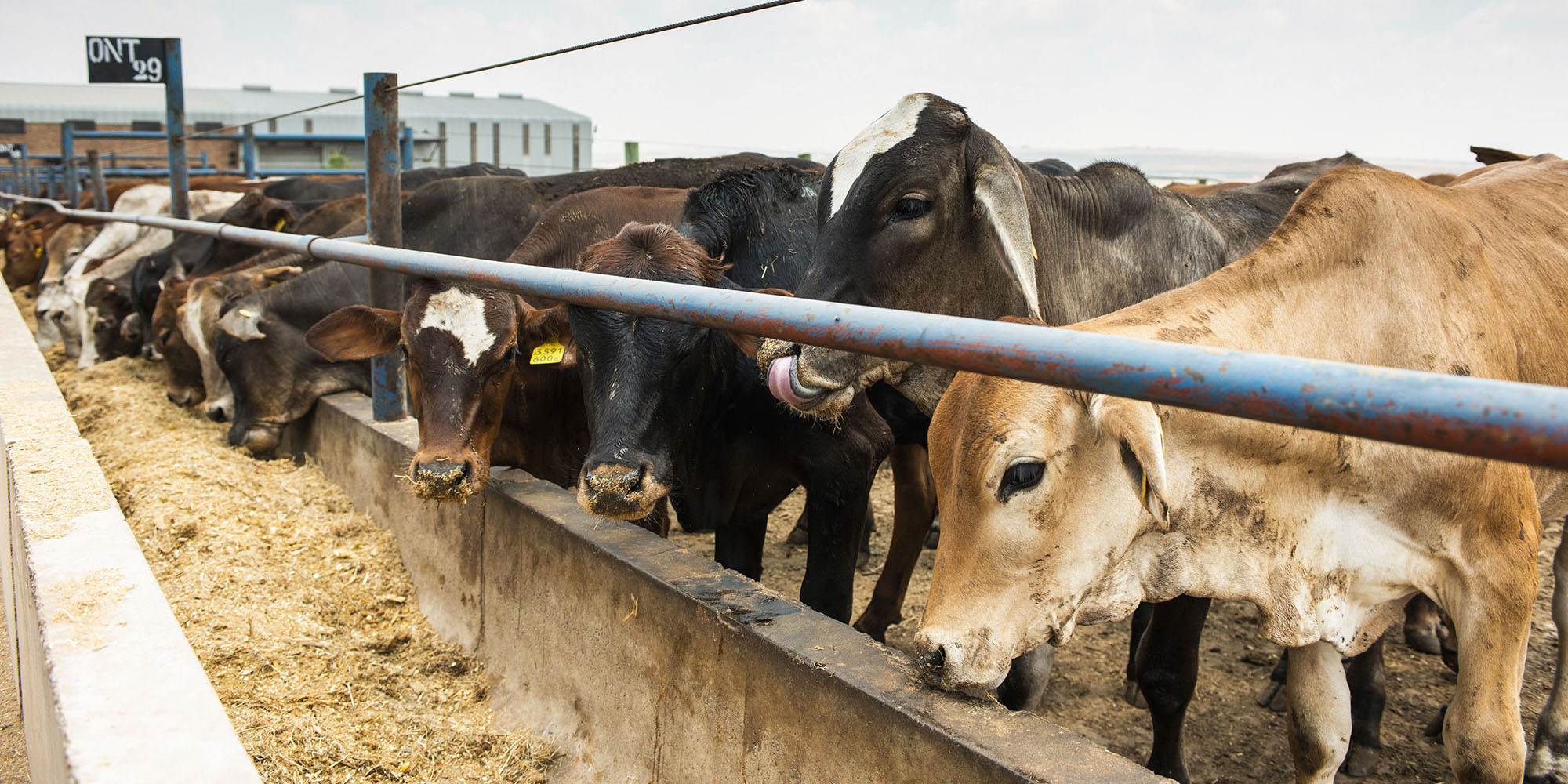 Department of Agriculture spokesperson Reggie Ngcobo. (Photo: Twitter)
Department of Agriculture spokesperson Reggie Ngcobo. (Photo: Twitter)
Question: The country is facing a foot-and-mouth disease (FMD) outbreak in six provinces. This led to Minister Didiza banning the movement of cattle in the entire country for three weeks. What causes FMD?
Answer: Foot-and-mouth disease is caused by a highly contagious virus and is infectious for cloven-hoofed animals, including sheep, pigs, goats, cattle and various wildlife species.
Q: Is there a relation between FMD and mad cow disease?
A: No, there is no relation to mad cow disease (Bovine spongiform encephalopathy). BSE is an incurable and progressive neurological disorder of cattle that results from infection by a transmissible agent called a prion. FMD is caused by a virus. BSE is fatal and transmissible to humans through infected meat. FMD is not transmissible to humans. The FMD virus is highly contagious to cloven-hoofed animals only, and causes economic and production losses due to reduced food intake and milk production. However, infected animals can recover from the lesions/blisters caused by the virus.
Q: How does FMD spread to other animals?
A: FMD can be spread through direct and indirect contact with infected animals. Direct contact includes nose-to-nose contact, contact with bodily fluids, manure and by-products. Indirect contact includes fomites that infected animals have been in contact with, people, trucks, equipment and air/wind, known as aerosol transmission. People can spread the disease regardless of changing clothes and showering, because they may harbour the disease in their nasal passages and transmit the virus to uninfected animals they are in contact with. It is advised for all people in contact with suspicious or infected animals to quarantine/isolate for at least 48 hours before working with uninfected susceptible species.
Q: Years ago, if there was a virus there would be checkpoints where people disinfect shoes, cars, tyres etc. How does the department control FMD-affected areas?
A: On infected properties, FMD can be controlled by placing animals with suspicious lesions or those that are confirmed positive under quarantine. These animals should not be able to have any direct or indirect contact with other susceptible animals.
The FMD virus can also spread through indirect contact. For this reason, it is recommended to not allow people working with FMD-affected animals to work with other unaffected susceptible species, or people that have interacted with infected animals must disinfect clothing and boots, shower and quarantine (have no contact with susceptible animals) for at least 48 hours before working with healthy animals. All equipment and vehicles that have been used on infected properties must be disinfected with recommended commercial products, bleach diluted to 3% or soda ash with water diluted to 4%.
Cloven-hoofed animals that have been in contact with positive animals, infected animals or animals with suspicious lesions may not be transported to new locations under any circumstances. All stakeholders, farmers, livestock owners, para-veterinary and veterinary professionals have been informed to be on the lookout and report any clinical signs suspicious of FMD, and to abide by movement controls in place to control the spread of FMD.
Lastly, animals can be vaccinated against FMD to help control the spread of disease … this is a state-controlled activity.
Q: What can farmers do when they suspect or notice a case of FMD on their farms?
A: Isolate or quarantine the affected/suspicious animals. All suspected outbreaks of FMD must be reported to the local animal health technician or state veterinarian immediately. A member of the state veterinary team will be deployed to follow up the farmer’s report to inspect the suspicion of disease.
Q: How long does it take to quarantine cattle if there is a case of positive FMD on the farm or in the area?
A: When suspicious lesions are detected and reported, a member of the local state veterinary team will be deployed to follow up the report. Should the lesions be suspect for FMD and blood and/or tissue samples are taken, the property will be placed under quarantine. The quarantine may be lifted if the investigations carried out resolve that the farm is negative. However, there may still be movement control in place regardless of the FMD status of the property due to its proximity to positive-infected locations.
Q: What is done to those animals that test positive for FMD? Are they killed?
A: No, it is not necessary to kill infected animals. However, reducing the number of animals that are excreting FMD virus will decrease the risk of spread to other properties. It is advised that animals destined for slaughter must be slaughtered as quickly as possible. Infected animals may be vaccinated. However, their vaccination status will limit their movement and marketing.
Q: Can the meat of an infected animal be eaten?
A: The FMD virus does not affect people. However, it is important to handle meat and products from slaughtered animals with care, since the virus can be spread through these products.
The World Organisation for Animal Health recommends the following measures for the inactivation of FMD virus in meat and meat products: 1) Canning meat and meat products at not less than 70°C for a minimum of 30 minutes; 2) Thorough cooking of previously deboned meat at not less than 70°C for a minimum of 30 minutes; and 3) Drying after salting with salt (NaCl) and completely dried.
Q: Can the skin of the infected cattle be used?
A: Skins must be salted for 28 days, or dried.
Q: In the provinces that have not reported any cases of FMD, is there anyone monitoring the movement of cattle?
A: At the moment, there is a movement ban imposed for cattle in the whole country. Over and above that, all stakeholders have been made aware of the heightened risk of moving and buying susceptible animals and are asked to be vigilant. DM/OBP




 Department of Agriculture spokesperson Reggie Ngcobo. (Photo: Twitter)
Department of Agriculture spokesperson Reggie Ngcobo. (Photo: Twitter) 